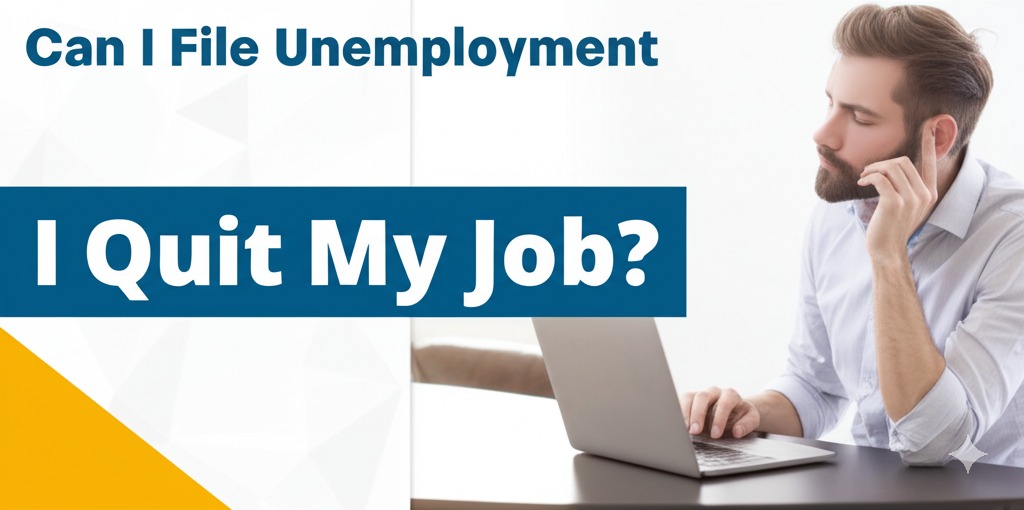
Quitting your job can be a big decision, and one of the first questions many people ask themselves afterward is, “Can I still collect unemployment benefits if I quit?” The answer isn’t always straightforward, and it varies depending on your location and the circumstances of your resignation. In this article, we’ll break down the details, help you understand your options, and guide you through what you need to know about filing for unemployment after quitting your job.
Understanding Unemployment Benefits
Before we dive into whether you can collect benefits after quitting, it’s essential to understand what unemployment benefits are and who they’re designed for.
Unemployment benefits are temporary financial assistance provided to workers who have lost their jobs through no fault of their own. These benefits are typically funded by employers through payroll taxes and administered by state governments.
To qualify, you generally need to:
- Have earned a minimum amount during a base period.
- Be able and available to work.
- Actively seek employment during your benefit period.
But when it comes to quitting your job voluntarily, things get more complex.
Can You Get Unemployment If You Quit?
The Short Answer: It Depends
In most cases, you can’t collect unemployment benefits if you quit voluntarily. However, there are exceptions if you can prove that you had a “good cause” for leaving your job.
What Qualifies as “Good Cause” for Quitting?
Each state defines “good cause” a little differently, but here are some common reasons that may be accepted:
1. Hostile or Unsafe Work Environment
If your workplace was dangerous, abusive, or discriminatory, and you made attempts to resolve the situation before quitting, you might be eligible for benefits.
2. Medical Reasons
If a physical or mental health issue made it impossible for you to continue working—and you can provide medical documentation—you could qualify.
3. Relocation Due to Spouse’s Job
Many states allow benefits if you had to quit because your spouse was transferred to a new location.
4. Significant Reduction in Hours or Pay
If your employer drastically cut your hours or wages, that could be seen as a constructive dismissal, making you eligible for unemployment.
5. Family Emergencies or Caregiving Responsibilities
Leaving a job to care for a sick family member may qualify, especially if no other options were available.
Pro Tip: Always document everything—emails, doctor’s notes, HR complaints. Proof is critical when claiming unemployment after quitting.
How to File for Unemployment After Quitting
Even if you think you had a good reason to quit, you’ll still need to go through the standard process of applying for benefits and explaining your situation.
Step-by-Step Guide:
- Contact Your State’s Unemployment Office – Each state has its own rules, so start by visiting their website or calling their hotline.
- File a Claim – Provide information about your employment, reason for quitting, and any documentation to support your claim.
- Wait for a Determination – A claims officer will review your application and decide if you’re eligible.
- Prepare for an Interview – In some cases, you’ll need to speak with someone to further explain your circumstances.
If your claim is denied, you can appeal the decision. Each state has an appeals process, so don’t give up too soon.
State-by-State Differences Matter
Unemployment eligibility rules vary by state, so what’s accepted in one state might be denied in another. For example:
- California tends to be more lenient with “good cause” reasons.
- Texas requires very strong documentation to prove you had no other option.
- New York emphasizes the importance of trying to resolve the issue before quitting.
Check your state’s Department of Labor website for specific guidelines.
What Happens If You’re Denied?
If your unemployment claim is denied after quitting, you still have options:
- File an appeal within the timeframe provided.
- Gather additional documentation or witnesses to support your claim.
- Speak with a legal aid office or employment lawyer for assistance.
Many people are successful on appeal, especially when they provide clear, credible evidence of a good cause.
Tips to Maximize Your Chances of Approval
- Document everything before you leave your job.
- Attempt to resolve issues internally (HR meetings, complaints, etc.).
- Consult with HR or legal experts before quitting, if possible.
- File promptly after quitting to avoid delays.
Conclusion: Know Your Rights Before You Quit
So, can you file unemployment if you quit your job? The answer is yes—but only if you have a valid reason and the right documentation. Quitting without a plan can be risky, but if your situation falls under your state’s definition of “good cause,” you could still get the support you need while looking for a new job.
Before making any decisions, check your state’s unemployment guidelines, speak to a legal expert if needed, and keep thorough records of your experience.

Andre Cuevas provides career insights, job search strategies, and professional advice to help individuals navigate the job market and achieve their career goals.




